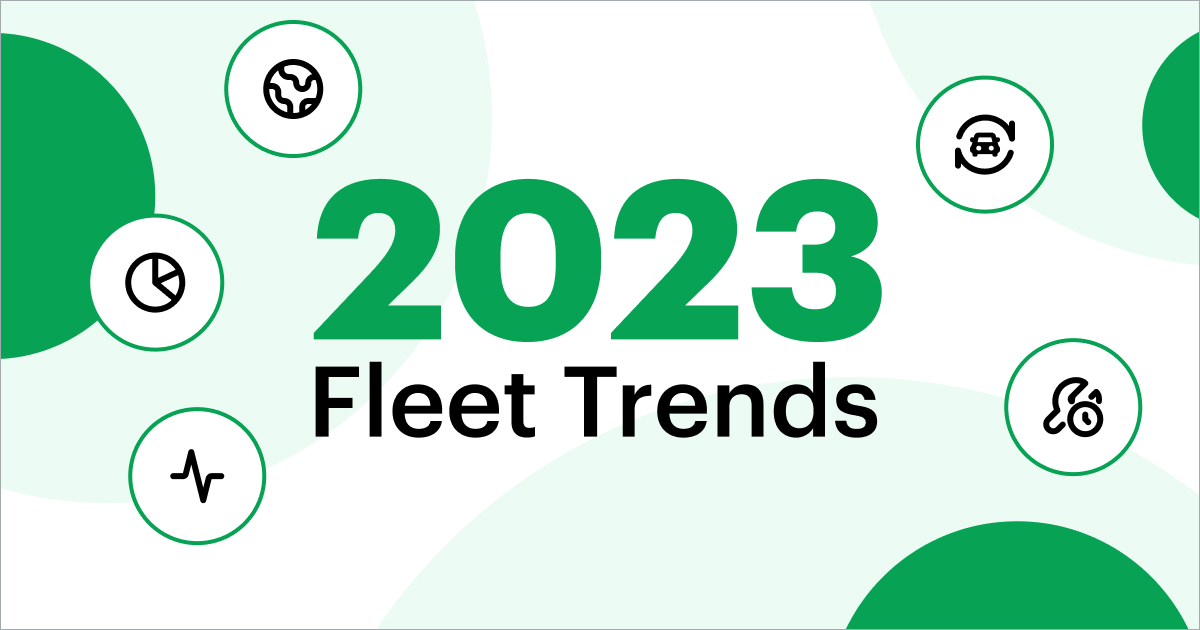
This is a guest post by Sarah Montgomery , writer for carinsurance.org. We are delighted to have her helpful insights featured on the Fleetio Blog!
You've signed up for fleet insurance because it just makes more sense. Cutting costs and reducing risk is as good for your business as it is for the insurance companies, so working to keep your premiums low is a win-win situation. By implementing a few of these tips, you can start saving even more on your premium costs. Also, by securing your property and safeguarding the health of your employees, you can gain the peace of mind that you've done right by your crew. Let's get started.
1. Identify risks.
Ask your current insurer to analyze your claims history. Working together, you can identify areas for improvement and highlight patterns in your claims history. ou can start saving even more on your premium costs. Also, by securing your property and safeguarding the health of your employees, you can gain the peace of mind that you've done right by your crew. Let's get started.
2. Train your drivers.
It may seem simple, but some fleet managers assume their employees are sufficiently trained. Some insurers offer discounts for training, and some don't. However, driver training should be viewed as a long-term investment that will work to reduce your claims, and will ultimately reduce your premiums.
3. Be selective about new hires.
Young drivers between the ages of 17 and 20 are more likely to make an insurance claim than other driver. Not only are these claims more common; they're more expensive. Premiums are generally lower for drivers who are at least 25 years-old with two years of experience. You may also want to run a background check on your drivers to eliminate anyone with major flags on their driving records.
4. Consider safety from all angles.
When one of your vehicles is involved in an accident, your bottom line takes a punch. But what's harder to handle is one of your drivers is seriously injured. Protecting your people is a big part of keeping your insurance premiums low. You can evidence your commitment to safety in little ways: airbags in the front, back and sides of the vehicle; anti-lock brakes; padded dashboards; and laminate windshields. In addition to adding safety features to vehicles, companies that hold regular safety meetings are often offered a discount. Let your employees know you're serious about safety, and your insurance company will reward you.
5. Install cameras.
Footage from cameras can be used to defend your company against fraudulent claims and can put at-fault claims to rest. Camera technology can also be used as an alert system to keep drivers from backing into objects.
6. Pay attention to the details.
Never sign off on your policy renewal without an in-depth read over. You never know when someone has tried to slip in an extra without your knowledge. You'd be surprised how many fees your can avoid by reading each line and putting your foot down against unnecessary add-ons. Keep track of your claims so that at the end of the term, you can cut any features you haven't used.
7. Secure your vehicle.
You will most likely be offered a premium reduction if you equip each vehicle in your fleet with a GPS tracker. If it's stolen, you can lock onto the location instantly, saving yourself a whole lot of heartache and hassle.
8. Use telematics.
Drivers can use telematic systems to communicate and map out directions. In addition to these hands-free capabilities, fleet telematics can be used to send information directly to insurance companies, providing strong incentive for your drivers to follow the speed limit.
9. Compare rates and always ask for more.
Use a broker or an insurance comparison site to compare prices of different companies. When it comes to discounts, it never hurts to ask. Some companies will provide discounts to established companies – operating under the assumption that companies that have been in business longer will produce fewer claims. Also, companies that use fleet management software may be offered a discount. Don't rely on your insurance agent to provide saving tactics. You should be the first to open up the table for negotiations. Remember, it never hurts to ask.
Sarah Montgomery grew up working in her family's auto parts store. Today, she writes for Carinsurance.org where she shares all of the tips she learned throughout the years. In her free time, Sarah watches reruns of BBC's Top Gear. Sarah loves connecting with readers, so feel free to leave a comment below!



